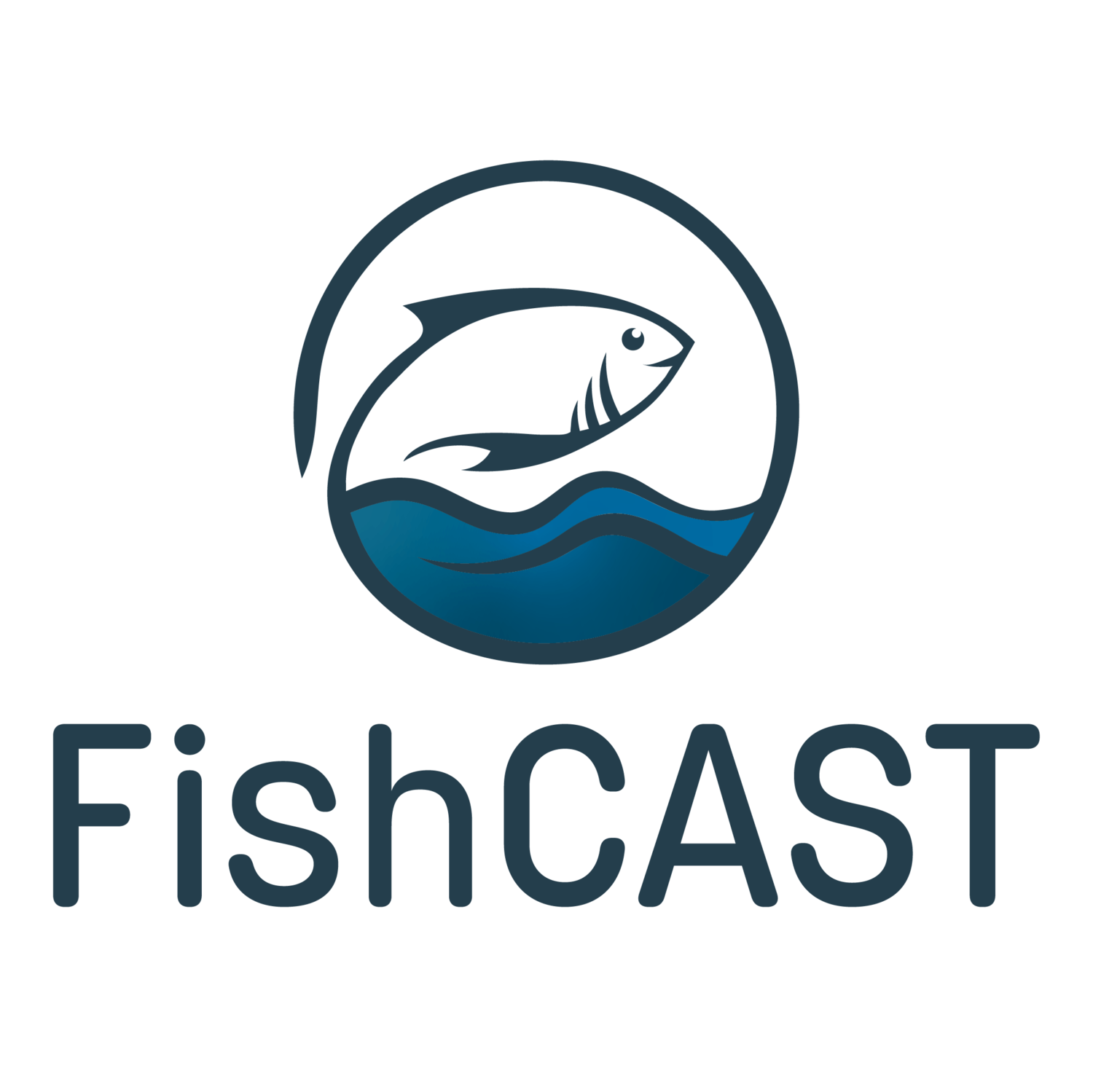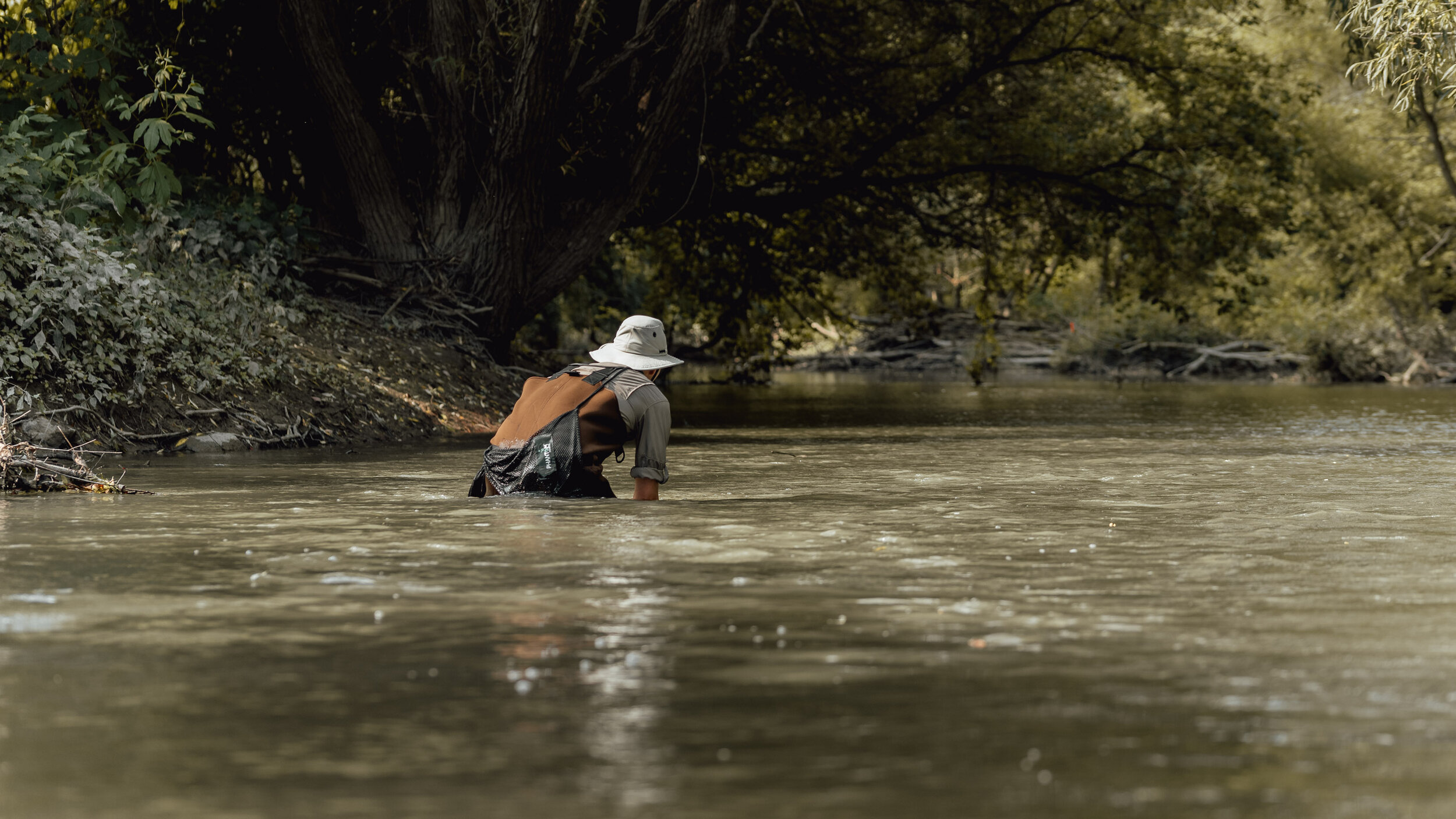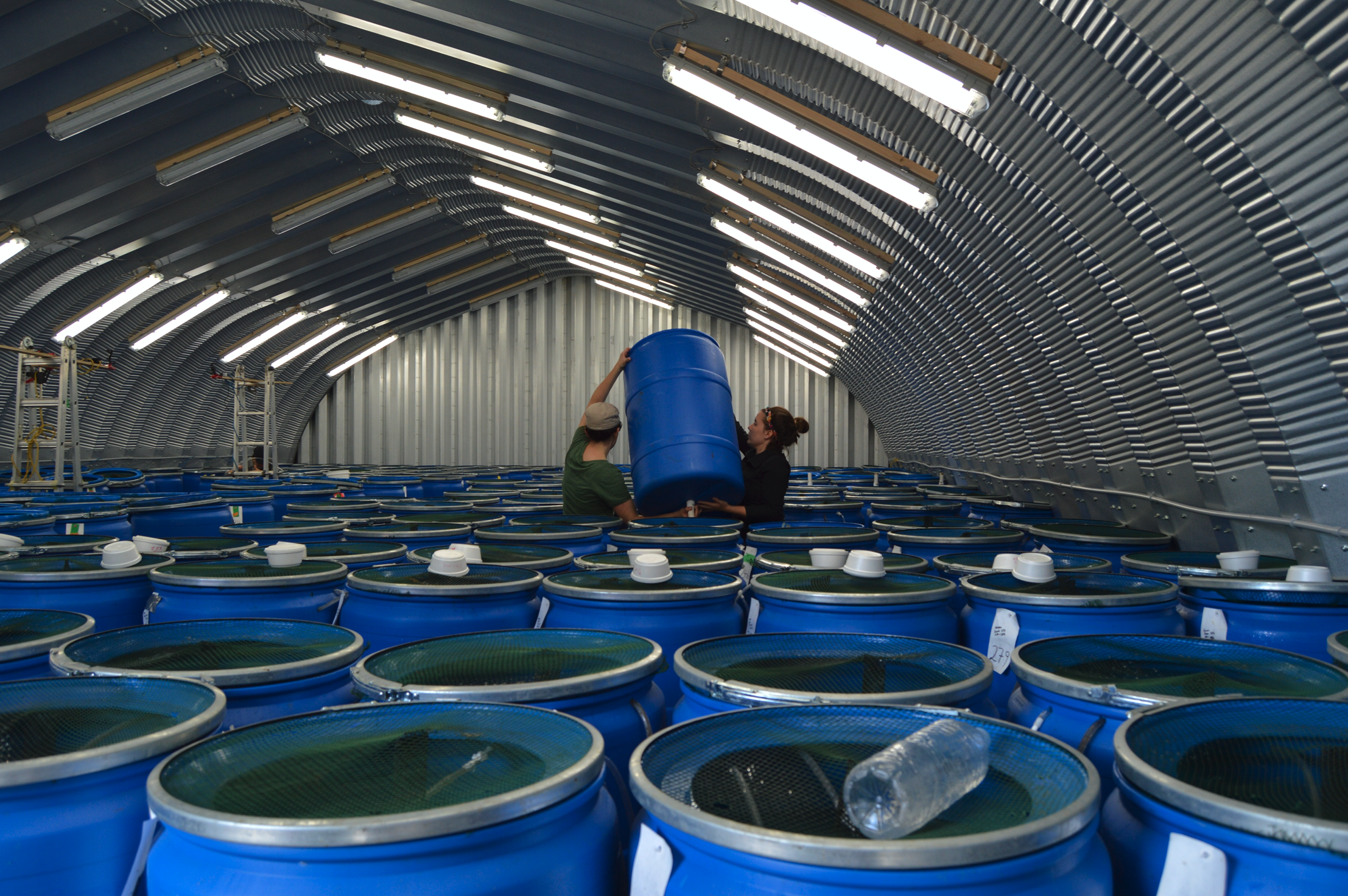Research Themes
The research undertaken by FishCAST trainees will fall under four themes that collectively include major pathways to addressing management and conservation of freshwater fish resources. Within each of these broad themes, trainees will pursue research projects defined by:
i) their personal interests and career goals
ii) our research team expertise and available infrastructure
iii) industry needs, government and NGO agency mandates
iv) known or emerging freshwater fisheries issues.
Preference will be given to project proposals featuring collaborative and integrative research that addresses issues related to mitigation and/or management of threats to freshwater fish resources.
Theme I: Ecosystem / Habitat Assessment
Overview: Productive freshwater fish ecosystems begin with healthy habitats in the watershed. Streams and rivers are critical habitats necessary for spawning, breeding, feeding, and growth of fish to maturity. FishCAST trainees will examine the effects of urban and agricultural land use on the physio-chemical characteristics and dynamics of freshwater ecosystems, the linkage between flow regime in lakes and rivers, climate change, and the effects of contaminants on fish populations.
Projects: Research in this theme typifies the broad approach necessary to effectively address freshwater ecosystem processes, incorporating multiple disciplines such as environmental chemistry, genomics, GIS, and traditional ecological knowledge. Projects will provide training in ecosystem-approaches to the restoration of fish habitats, such as linking focal species to ecosystem attributes that support them (e.g., nutrients, invertebrates).
Outcome: With the training provided under this theme, FishCAST trainees will have the expertise to guide best practices related the restoration and management of critical fish habitats.
Theme II: Fisheries Ecology / Exploitation
Overview: Exploitation of freshwater fish stocks begins with fisheries-induced selection at the individual level that leads to population declines and altered structural and functional properties and the ecosystem services generated by fishes.
Projects: FishCAST trainees will learn ecological theory underpinning modern freshwater fisheries assessment and conservation (e.g., life-history theory, behavioural economics), and be trained in conducting laboratory, computer-based, and analytical (spatial and temporal) practical skills associated with fisheries ecology research and management (e.g. multi-species modelling, acquiring data). Other issues of relevance include the risk/benefits of eating freshwater fishes — a topic that cuts across the disciplines of environmental risk assessment, human health and values, and social justice issues related to the effectiveness of communication outreach and information transfer to diverse cultural groups (e.g., Indigenous communities).
Outcome: The profound ecological, social and political implications of fisheries ecology research means that FishCAST trainees will develop a sound interdisciplinary scientific framework linking drivers of resource use, effects on the resource base, and interactions with environmental stressors.
Theme III: Fish Health & Fitness
Overview: Knowledge of the status of fish health is of particular importance as fish face the need for rapid adaptation to increasing and varied stressors (e.g., habitat disruption, climate change, invasive species).
Projects: FishCAST research will explore the relationship between individual fish health and population-level processes of exploited stocks as an essential element of sustainable commercial and recreational fisheries. Investigating factors impacting fish health (e.g., contaminant loads, nutrition status) can also inform the risk/benefits of human consumption with cross-disciplinary implications, especially in Indigenous communities. FishCAST trainees will moreover focus on the health status of fish in declining and at-risk populations (e.g., immune function and disease transmission) as the role of fish health in the conservation of at-risk fish species is also poorly understood. FishCAST trainees will gain experience in approaches including transcriptomics, ecophysiology, immunology and behavioural profiling.
Outcome: The projects under this theme will not only provide information necessary to manage and conserve fish populations, but will also redefine resource managers’ ability to assess, target, and screen species for their ability to cope with stressors, and hence stem biodiversity loss.
Theme IV: Fish Culture
Overview: Supplementation from cultured (hatchery) fish is becoming critical for the sustainability of fished stocks and species at risk. Fish reared in culture facilities have their own set of stressors to contend with, and the ability to assess a stock’s health and adaptability can be critical for maximizing production in culture facilities.
Projects: Research will involve mitigating efforts of fish culture, stocking and outcome monitoring (e.g., reproductive biology, broodstock selection, transport stress, environmental DNA applications, transcriptional profiling, fishery and population modelling). Students will be trained in evidence-based best practices for: i) selecting source populations for culture, reintroduction for or supplementation for commercial/recreational fisheries or species at risk; ii) improved production efficiency, sustainability, product quality, and profitability.
Outcome: The ability for FishCAST trainees to offer critical information and advice for selecting broodstock acclimated to the stressors they will encounter, and being trained in cutting-edge techniques in monitoring fish performance post-release are necessary ingredients for restoration success.





